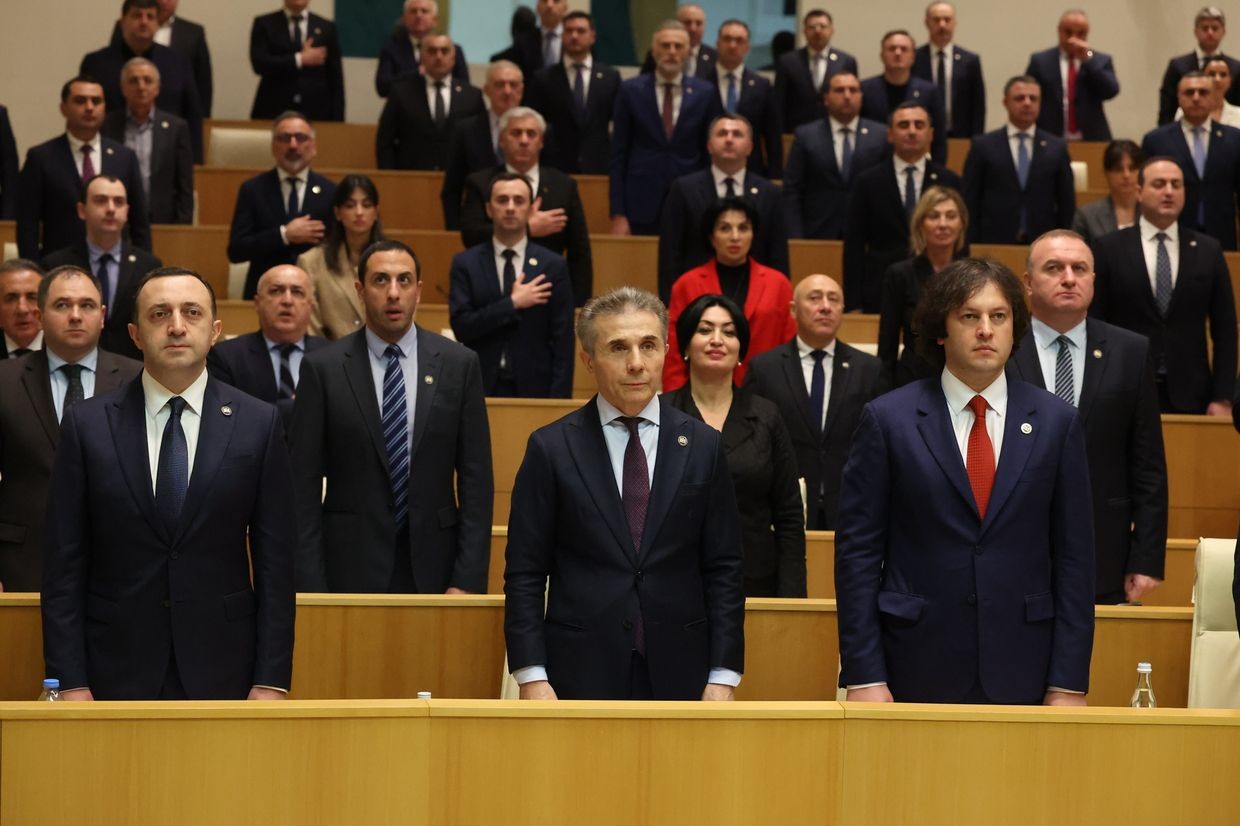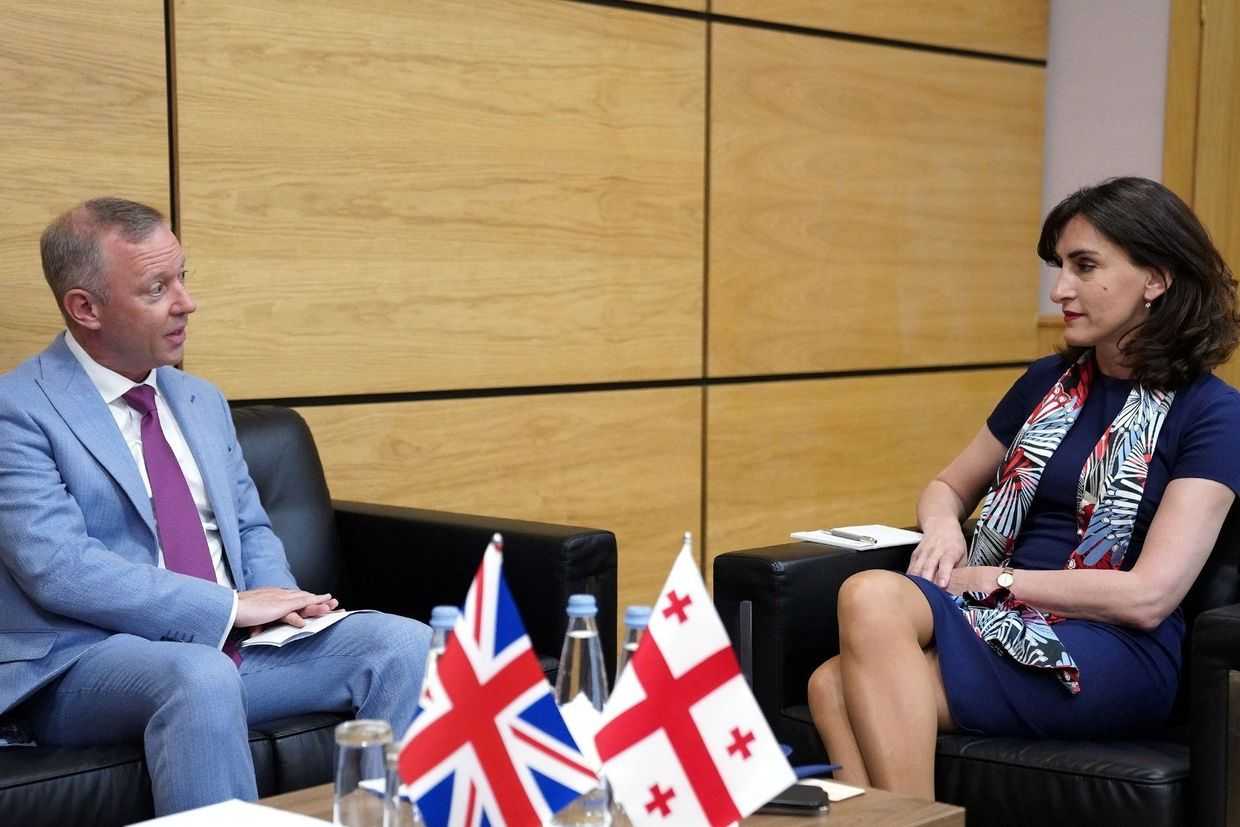
Editor’s note: This article has been updated to note that the law is already in force.
On Wednesday, Georgian Dream passed new legislative changes restricting foreign grants for civil society and media organisations, which have already been targeted by the ruling party. On the same day, the parliament also adopted a law limiting donations to political parties.
According to the changes in the Law on Grants, an organisation will not be able to receive a foreign grant unless it has the consent of the government or a person/body authorised by it. The donor organisation will be required to submit a draft agreement of the grant to the government before its approval.
Receiving grants without government consent will be prohibited, and any organisation that accepts an unauthorised grant will be fined double the amount of the grant in question.
The draft amendments also establish exceptions — in particular, the rule of mandatory government consent does not apply to grants issued by international sports associations, federations, and committees, as well as individual scholarships issued for secondary and higher education and scientific work outside the borders of Georgia.
The Georgian Anti–Corruption Bureau will monitor the issuance and receipt of ‘prohibited grants’.
The Anti-Corruption Bureau will have the authority to request financial statements, to question an individual in the bureau or before a magistrate judge, and to request necessary information, including special categories of personal data, classified personal data, and information containing secrets.
Georgian President Mikheil Kavelashvili signed the law on 16 April, meaning that it is already in force.
The adopted changes are yet another blow to civil society and media organisations — many of which rely heavily on grants from international donors.
During a press briefing held a week before the final parliamentary hearing on the now-passed changes, representatives of Georgian civil society described them as ‘an act of persecution against the Georgian people’.
‘This law aims at turning Georgia into a closed, isolated state, where every sphere of public life is to be subjected to the totalitarian-style control of the ruling Georgian Dream party and where receiving much-needed support from international partners and friends is to be ruled out’, the statement from the civil society representatives read.
The ruling party’s intention to financially restrict its critics was openly expressed by Georgian Dream MP Levan Machavariani, who, even before the changes were adopted, listed the organisations that would be banned from receiving grants.
‘If [the donor] convinces the government that the [grant] will serve a useful purpose for our country, that it will benefit our population, of course the government will give its approval’, he said during a speech in parliament on 8 April.
‘But if they fail to convince the government, and we see signs that the money is intended for [Nino] Lomjaria, [Eka] Gigauri, Ms. [Baia] Pataraia, and others to organise yet another revolutionary scenario, then of course it will not be approved’, Machavariani added.
The individuals named by Machavariani are all well-known critics of the government: Lomjaria, who served as Public Defender in 2017-2022, is currently the head of pro-EU civil society organisation Georgia’s European Orbit; Gigauri leads local anti-corruption organisation Transparency International Georgia; and Pataraia runs Sapari, a women’s rights advocacy organisation. All three, as outspoken opponents of the government, are frequent targets of the ruling party’s hostility.
In response to the adoption of the legislative changes, the EU’s top diplomat, Kaja Kallas, wrote on X that the new laws ‘further shrink civic space’ and ‘undermine Georgia’s EU candidate status and core democratic principles’.
Other legislative changes
The changes to the grant law are part of a series of legislative measures recently adopted by the ruling party aimed at targeting civil society and the media. These new laws include the foreign agent law and the recently adopted ‘Georgian version of the US Foreign Agents Registration Act (FARA)’, as well as restrictive amendments to the Broadcasting Law and legislative changes to exclude civil society organisations from official decision-making processes.
On Wednesday, in addition to the grants law, Georgian Dream also passed amendments to the Law on Political Associations of Citizens in their final reading.
According to the changes, ‘a political party and a person with a declared electoral objective will no longer be allowed to receive, in the form of a donation, the organisation of a lecture, seminar, or any other similar public event from a legal entity registered in Georgia or abroad and/or from any other type of association of persons’.
According to the explanatory note, both international and local organisations will be barred from holding events for political parties and individuals with electoral goals.
Georgian Dream significantly accelerated the adoption of restrictive legislation after the start of anti-government protests in late November last year, which were sparked by the ruling party’s announcement that it was halting the country’s EU membership bid.
Georgian Dream has repeatedly claimed that the new bills are necessary to fight the ‘influence of external powers’. Nonetheless, critics of the ruling party have emphasised that these changes aim to undermine the media and civil society in an already fragile democracy.
The restrictive laws are being passed in a parliament where opposition is virtually nonexistent. Following the disputed 2024 elections, opposition parties refused to participate in the legislative process.
Since then, the ruling party has been initiating and passing new restrictive legislations without any obstacles, targeting the media, civil society, and other critics.











